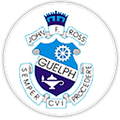Assessment & Evaluation
Overview
- Assessment and evaluations are the student’s opportunity to provide evidence of learning.
- They will be assessed and evaluated on their level of achievement of the Ministry expectations under the categories of Knowledge and Understanding, Thinking, Application and Communication.
- Learning Skills will also be recorded and reported as part of the Ontario Provincial Report Card under the areas of Responsibility, Organization, Independent Work, Collaboration, Initiative, and Self-Regulation.
Term Work
As per Ministry policy, the Term Work has been set at 70% of the course mark. Students will be expected to demonstrate achievement of learning through your knowledge, thinking, communication and application of the learning. All categories of achievement will be assessed throughout the semester, however weighting of the categories will vary according to the assessment type and the specific learning expectation being emphasized at that point in the course. Achievement should reflect the student’s most recent and most consistent level of achievement with emphasis placed on most recent evidence. Evidence of a student’s learning will be collected from a multiple sources including observation, conversations, and physical products in a variety of forms.
| Knowledge (“What” questions) |
|
| Thinking (“Why” questions) |
|
| Communication (Products / Performances) |
|
| Application (“How” questions) |
|
Note: The weighting for each topic area will vary for each course.
At the completion of each unit there will be a cumulative unit test. In addition to the unit test, there will be regular summative quizzes to assess student progress, as well as periodic projects assigned.
Due to the nature of the subject matter, there will be many formative (i.e. not forming part of the student’s grade) opportunities to inform the teacher of student progress.
Final Exam
As per Ministry policy, the Final Summative Assessment has been set at 30% of the course mark.
This assessment will be in the form of a final exam, testing material from the entire course of study.
Exam time is 9:15 am on the exam day corresponding to the period of the course (e.g. period 1 will have an exam on exam day 1).
Learning Skills
As per the provincial report card, students will be evaluated based on the following learning skills:
| Responsibility |
|
| Organization |
|
| Independent Work |
|
| Collaboration |
|
| Initiative |
|
| Self-Regulation |
|
Formative and Summative Assessment:
Formative assessment “occurs frequently and in an ongoing manner during instruction, while students are still gaining knowledge and practising skills.” (Growing Success p.31). Students are provided opportunities to submit or discuss assigned tasks and assignments in progress to gain feedback and improve prior to the completion of a summative task.
Summative assessment “is used by the teacher to summarize learning at a given point in time.” (GS p.31). It is used to judge the quality of student understanding according to specific criteria made available to students. It is used to assign a grade for the course and to provide information about achievement through reporting.
Students best succeed in a course when they diligently complete the formative assignment and implement the feedback received on these assignments (changes/suggestions/ corrections etc.) in their summative tasks.
You will be told in advance of when assignments are due. It is your responsibility to plan, prepare, complete and submit the assignment by the due date. If you require extra help, you may make these arrangements well in advance with your teacher.
Evaluation of Group Work:
Assignments for evaluation may involve group projects which will require specific roles and task assignments to complete the activity. Each student is to be evaluated independently regarding the final product and will receive an individual mark as opposed to a common group mark.
Homework:
Homework may be assigned for students to complete a task assigned during class, or to consolidate learning from the day’s lesson. Homework itself shall not be used to determine part of a student’s final grade in a course.
Culminating Tasks / Summative Examinations
(Final 30% – See also Student Handbook):
Culminating tasks and exams allow students to demonstrate their learning in familiar contexts: The final evaluation allows the student an opportunity to demonstrate comprehensive achievement and understanding of the overall expectations of the course.
As of September 2015, all courses will include at least a portion of the 30% culminating task on a scheduled exam day where students are expected to demonstrate their learning in a rich assessment task. This may include such evidence as is gathered from an examination, a performance, an essay, or other such sample relevant to the course content and understandings.
Upper Grand District School Board Expectations
This course incorporates, as appropriate, considerations for program planning that align with ministry and board policy and initiatives (e.g., planning related to students with special education needs, English language learners, environmental education, equity and inclusive education, financial literacy education, the Ontario First Nation, Métis, and Inuit education policy framework, the role of information and communications technology, health and safety, etc.).


